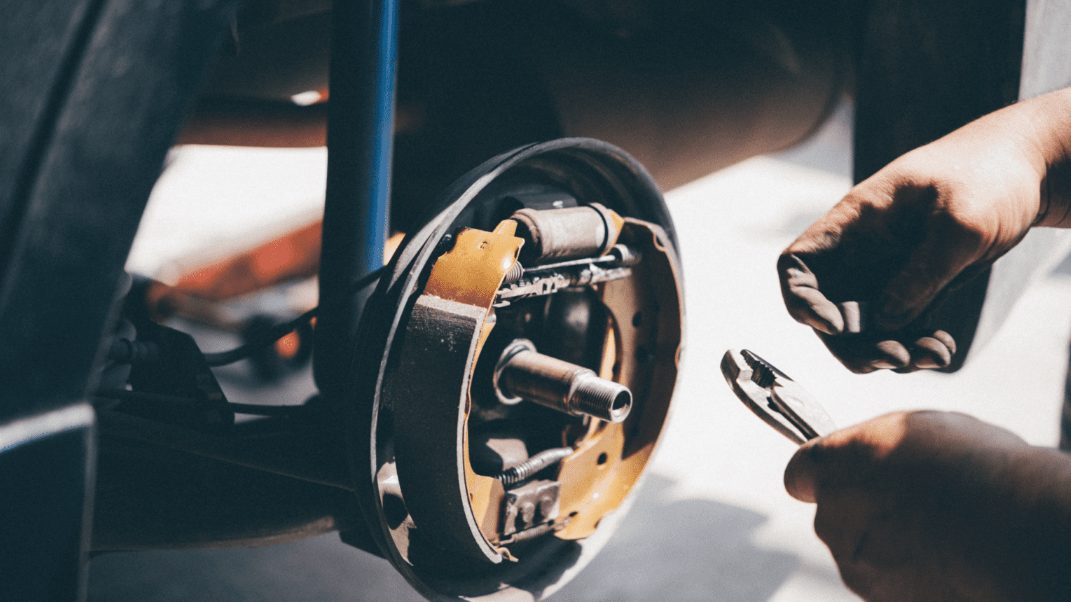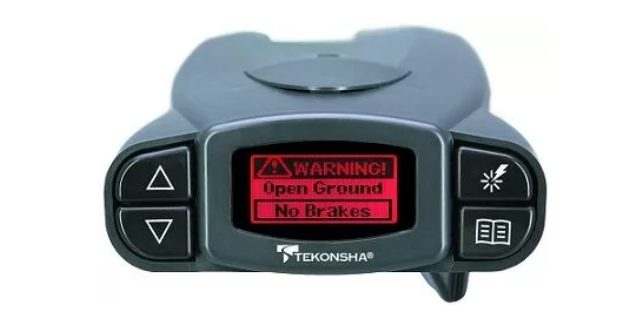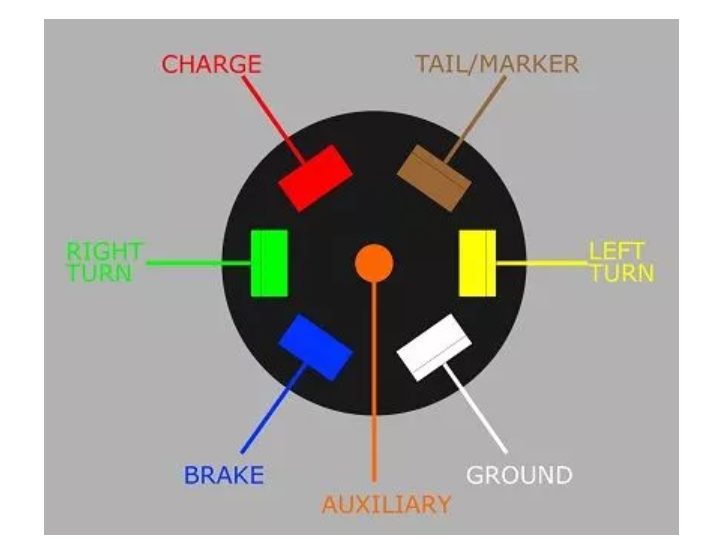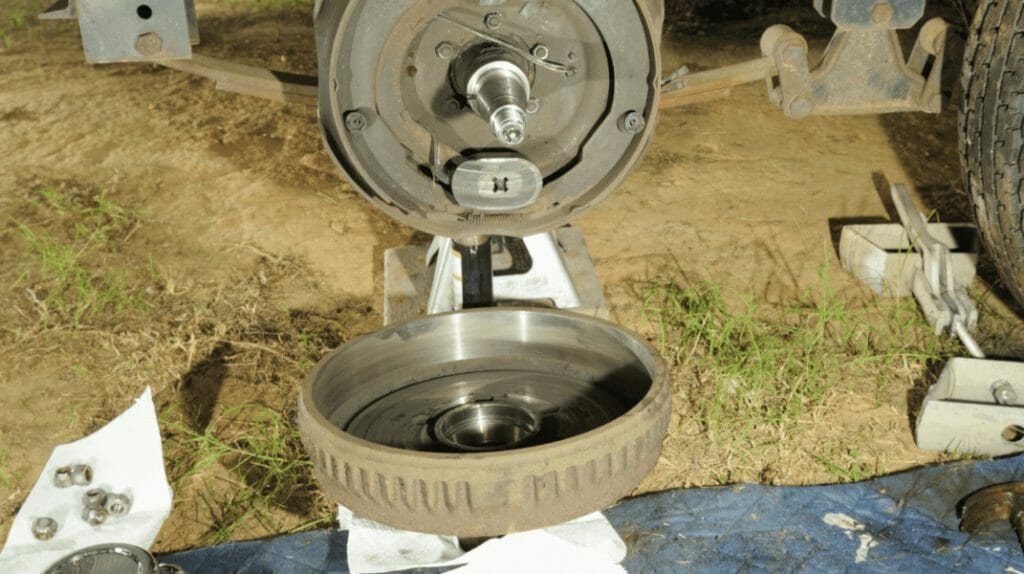How to Test Electric Trailer Brakes – Everything You Need to Know

As a trailer owner, you understand the importance of brakes. Electric brakes are standard with more medium-duty trailers.
Trailer electric brakes are often checked by first inspecting the brake controller. If there is nothing wrong with your braking controller, check for wiring issues and shorts within the brake magnets themselves.
You need reliable brakes pulling a heavy load or going up and down dangerous mountain roads. You shouldn’t take your vehicle out on the road if you have any reason to believe that the brakes aren’t functioning correctly, so if you notice a problem, fix it ASAP.
How to Test Electric Trailer Brakes
Now, let’s look at your Electronic Brake Control Panel. If you have a model with a screen, you’ll know if there’s a problem if the screen lights up.

The controller of an electric brake system on a trailer is a device that sends power to the electric brakes. When you step on the brake pedal of your tow vehicle, the electromagnets inside the brakes are turned on, and your trailer stops.
The brake controller’s magnetic action could be checked in the following ways:
1. Compass Test
Simple, primitive, but helpful! I don’t know if you have a compass on hand, but here’s a simple test to see if you do.
Use the controller to give the brakes power (you may need a friend to help you with this) and put your compass near the brake. If the compass doesn’t turn, your brakes aren’t getting the power they need to work.
You should check the wires and connections for damage if the test doesn’t work and the compass isn’t turning. Even though this test is quite entertaining, not many people have a compass these days; therefore, if you have a screwdriver or a wrench handy, We have a test that is even easier for you!
2. Wrench Test
When the electromagnetic field is turned on, metal objects should stick to it. If your wrench (or another metal object) is sticking well or not so well, you can also tell how much force you are using.
When you use the controller to turn on your brakes, they work well if your wrench sticks to them. If not, you need to recheck your connections and wiring.
Using the BrakeForce Meter Tester
The Electric Brake Force Meter is another tool that can be used. It can simulate your load and tell you how your trailer should respond when you step on the brake pedal.
Testing Your Brake System with Trailer Connected
If your brake controller seems fine, but your brakes still don’t work, the wiring or connections could be a problem. A multimeter can check the link between the brakes and the brake controller.
To figure out how much power your brakes need, you need to know how big they are and how many there are. Most trailers have at least two brakes (one for each axle). If you have more than one axle, make sure you add the correct number of brakes.
For this test, you’ll need a fully charged 12-volt battery and to know how to set up a basic 7-pin trailer plug:

Connect the blue wire, which controls the brakes, to an ammeter setting on the multimeter between the brake controller and the trailer connector. It would help if you tried to get at most:
Brake diameter 10-12″
7.5-8.2 amps with 2 brakes
15.0-16.3 amps with 4 Brakes
22.6-24.5 amp usage with 6 brakes.
Brake diameter 7″
6.3-6.8 amps with 2 brakes
12.6-13.7 amps with 4 Brakes
19.0-20.6 amp usage with 6 brakes.

If your reading is higher (or lower) than the numbers above, you should check each brake to see if it is broken. Make sure that your trailer is NOT hooked up this time:
- Test 1: Connect your multimeter’s ammeter setting to the positive lead of a 12-volt battery and any of the brake magnet wires. It doesn’t matter which one you choose. The negative end of the battery should be connected to the second magnet wire. Replace your brake magnet if the reading is between 3.2 and 4.0 amps for 10 to 12 inches or between 3.0 and 3.2 amps for 7-inch brake magnets.
- Test 2: Put the negative lead of your multimeter between any of the brake magnet wires and the positive battery terminal. If the multimeter shows ANY amperage when you touch the negative end of the battery to the base of the brake magnet, your brake has an internal short. In this case, you also need to replace the brake magnet.
How to Test Trailer Brakes with Multimeter
Set your multimeter to Ohms to test trailer brakes; put the negative probe on one of the brake magnet wires, and the positive search on the other magnet wire. If the multimeter gives you a result that is either below or over the specified resistance range for the size of the brake magnet, then the brake is defective and needs to be replaced.
This is just one way to test each brake.
There are three ways to check if something is wrong with your brakes:
- Testing the resistance between the brake wires
- Testing amperage from the brake magnet
- Testing current from the electric brake controller
FAQs
1. How do I know if the brake controller for my trailer is working?
During a test drive, pressing the pedal doesn’t always tell you which (if any) of the trailer brakes are working. You should instead look for a bar that slides on your brake controller. It will either include an indicator light or a numeric scale from 0 to 10.
2. Can you test a trailer brake controller without a trailer?
Absolutely! You can test your trailer’s electric brakes without connecting it to your tow vehicle by using a separate car/truck 12V battery.
3. Can I test trailer brakes with a battery?
The electric drum brakes on a trailer can be tested by directly connecting +12V power from a fully charged battery. Connect the power to the trailer’s hot and ground contacts or the two wires of a standalone brake assembly.
Wrapping Up
There are many ways to figure out why the brakes on a trailer aren’t working. We hope that this guide has been helpful to you.
